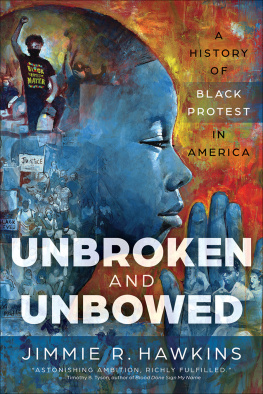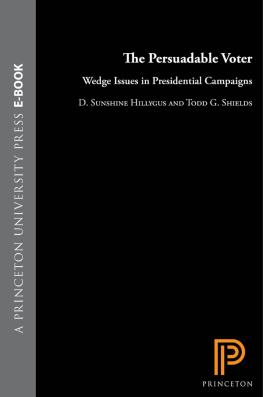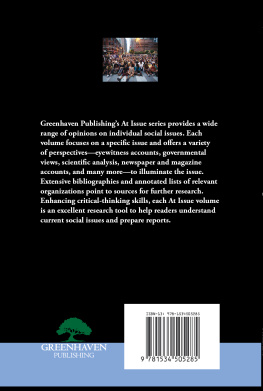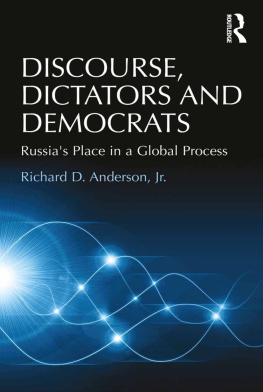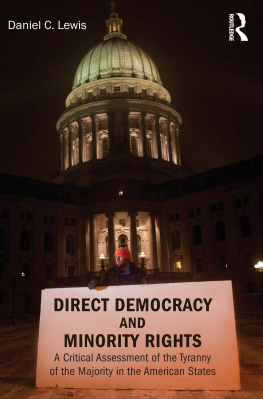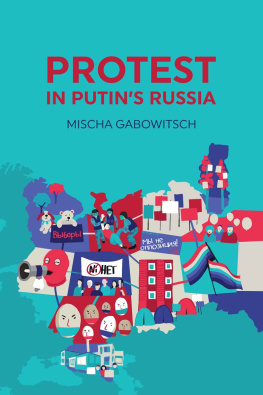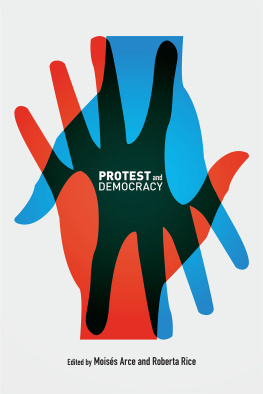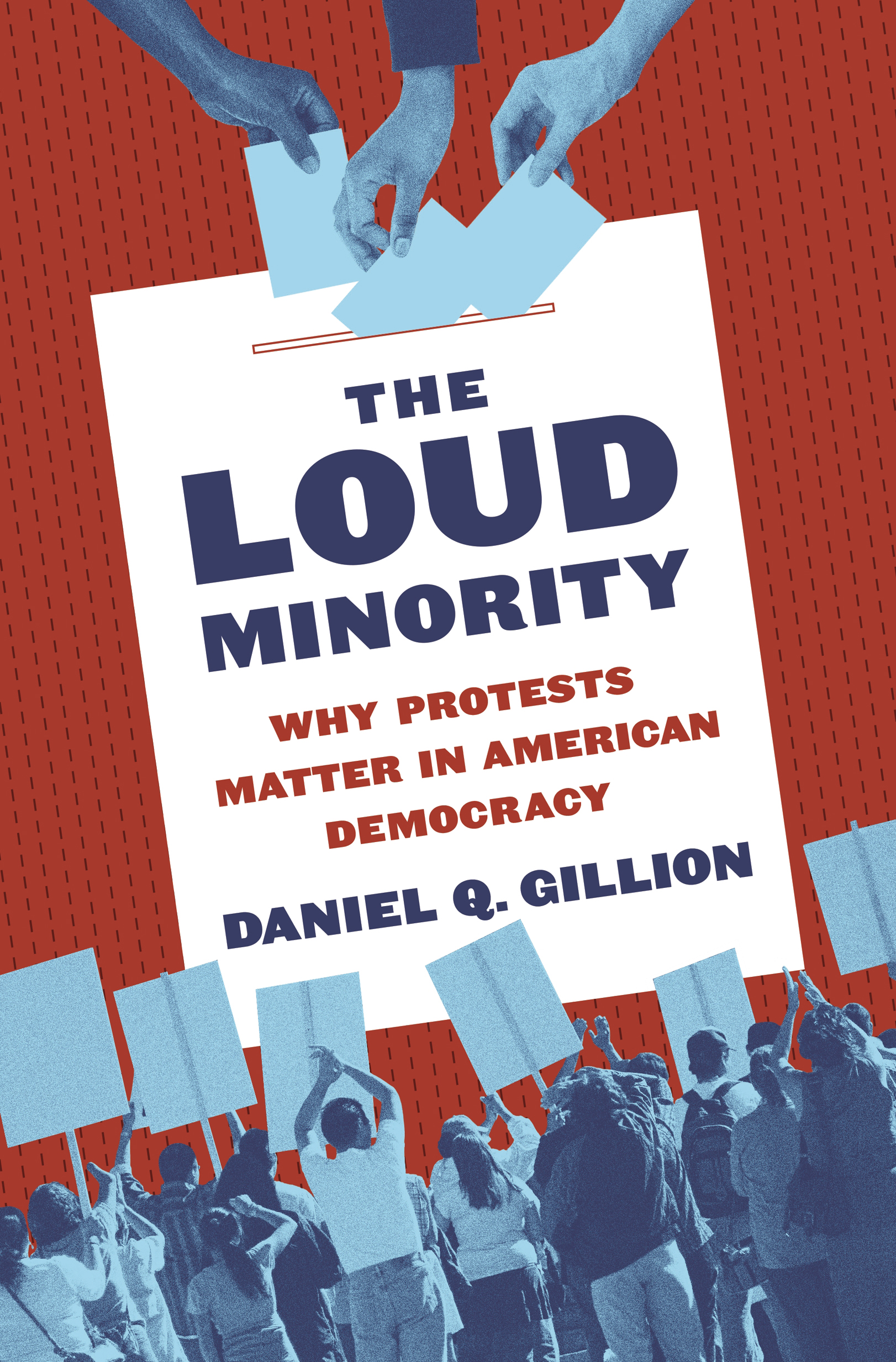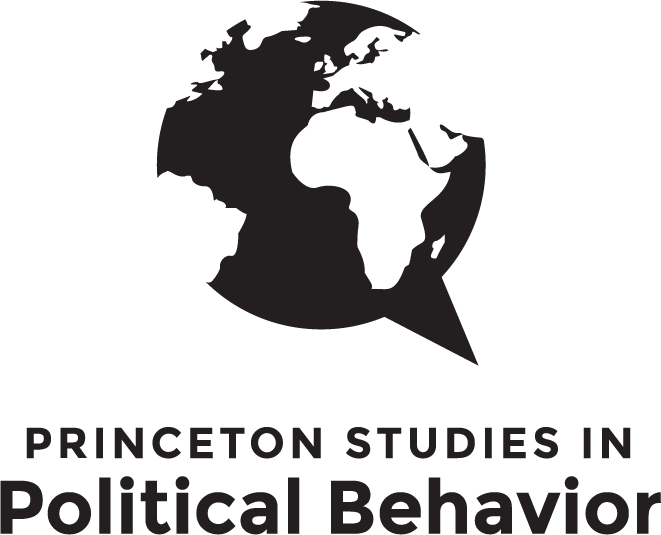
Tali Mendelberg, Series Editor
The Loud Minority: Why Protests Matter in American Democracy, Daniel Q. Gillion
The Cash Ceiling: Why Only the Rich Run for Officeand What We Can Do about It, Nicholas Carnes
Deep Roots: How Slavery Still Shapes Southern Politics, Avidit Acharya, Matthew Blackwell, and Maya Sen
Envy in Politics, Gwyneth H. McClendon
Communisms Shadow: Historical Legacies and Contemporary Political Attitudes, Grigore Pop-Eleches and Joshua A. Tucker
Democracy for Realists: Why Elections Do Not Produce Responsive Government, Christopher H. Achen and Larry M. Bartels
Resolve in International Politics, Joshua D. Kertzer
The Loud Minority
Why Protests Matter in American Democracy
Daniel Q. Gillion
PRINCETON UNIVERSITY PRESS
PRINCETON AND OXFORD
Copyright 2020 by Princeton University Press
Requests for permission to reproduce material from this work should be sent to
Published by Princeton University Press
41 William Street, Princeton, New Jersey 08540
6 Oxford Street, Woodstock, Oxfordshire OX20 1TR
press.princeton.edu
All Rights Reserved
LCCN: 2019955873
ISBN 9780691181776
ISBN (e-book) 9780691201726
Version 1.0
British Library Cataloging-in-Publication Data is available
Editorial: Bridget Flannery-McCoy and Alena Chekanov
Production Editorial: Debbie Tegarden
Jacket/Cover Design: Amanda Weiss
Production: Erin Suydam
Publicity: James Schneider
Copyeditor: Cindy Milstein
Jacket Credit: iStock
ACKNOWLEDGMENTS
From informal conversations on protests at political science and sociology conferences to the dinner table conversations of social movements with family members and close friends, this book is the product of many different voices that have been channeled through my raw passion to improve our understanding of American democracy. The journey I took in writing this book was long and arduous. Thus it was impossible to produce this book alone. There was a support group behind me that demanded my best, and who loved and encouraged me when my best was not enough.
I want to thank the Andrew Carnegie Foundation for providing me with the resources and time to write this book. As a Carnegie Fellow, I was introduced to a family of scholars who were passionate about addressing some of the worlds most pressing issues. The fellowship also provided me with a large platform to draw greater attention to my research efforts. Alongside the institutional support I received, I had an amazing team of undergraduates and graduates at the University of Pennsylvania that provided an invaluable contribution. I am grateful for the efforts of Ava Barzegar, Candida Alfaro, Victoria Brown, Karina Miranda, Gabrielle Jackson, Sophia Elliot, Danielle Guy, Jillian Jones, Bridget Amoako, Skyler Rankin, Acacia Overstreet, Ashley Gilmore, Luke Yamulla, Drisana Hughes, Stephen Chukwurah, Sarah Simon, Michael John, Cary Holley, Makhari Dysart, Kaiyla Banks, Trevor Nunez, Jennifer Hu, and Amber Mackey. Their engaging conversations and lived experiences were fundamental to the completion of this book.
Several individuals have served as mentors from afar, not only influencing my thought process with their own writings, but providing sage advice when I needed it most. I am eternally thankful to Laura Smith, Stephanie Heilman, Christopher Parker, Michael Dawson, Jane June, Zoltan Hajnal, Martin Gilens, Jim Stimson, Robert Shapiro, Andrea Campbell, Paula McClain, Christopher Wlezian, Vesla Weaver, Sophia Wallace, Megan Francis, Chris Zepeda-Milln, Matthew Platt, Dianne Pinderhughes, Marion Orr, and Sarah Soule.
There are a few individuals, however, who served as my mentors and nurtured my development in academia. The sound advice and counsel I received from these individuals not only drastically improved the ideas expressed in this book; their guidance also shaped my worldview and allowed me to find my own path. I have a clearer view of the world because I sit on the shoulders of these giants: Fredrick Harris, Claudine Gay, Jennifer Hochschild, Vince Hutchings, Valeria Sinclair Chapman, Frank Baumgartner, Tali Mendelberg, Richard Niemi, Taeku Lee, Rogers Smith, and Amy Gutmann.
In the end, though, this book was only made possible by the advice, comments, criticism, support, and love that was offered by my coauthor of life, my wife, Leah.
THE LOUD MINORITY
Introduction
And we had an election for president that was determined on a slogan called the silent majority. Do you remember that? And if you werent in the silent majority, you were in the loud minority. That was me [laughs]. And there was something wrong with the loud minority. It was like us and them. And weve been having those us and them elections ever since.
WILLIAM CLINTON, MARCH 4, 2000
I would like to punch him in the face, Donald J. Trump bellowed into the microphone with a schoolyard bully stare in his eyes as a protester was escorted from a campaign rally in February 2016. The attendees cheered and applauded emphatically. Trump paused, looked out over the crowd, and took in the favorable response. As he basked in the appreciation of his followers, he smiled contentedly, pleased to have shown up the protester. It was clear Trump was not a fan of the protests. In that moment, however, Trump had done something more than just express his disdain for a disruptive protester: he established a political narrative. To the rambunctious crowd at the rally and some viewers at home, the protester became the villain of this American story, and the contrarian political message he espoused was the evil that Trump would guard against.
Trump strove to make it clear that this and other protesters did not reflect the publics concerns. Rather, they were isolated and erratic abnormalitiesdistractions that needed to be shunned. The rooting crowd of potential voters was us, and the rude protesters were them. This creation of a wedge between the public and protest activists, while far from original, warrants a closer look. In order to understand the contemporary narrative surrounding political protesters, we must understand the background story, which began nearly fifty years ago with the birth of the silent majority.
The Back Story
On November 3, 1969, President Richard Nixon appeared on televisions across the United States to make an important speech about the Vietnam War. The opening wide-screen video shot showed Nixon in the Oval Office, sitting at the Wilson desk. California gold-colored drapes framed the background, and the American flag hung behind his right shoulder. It was a classic presidential shot. He firmly grasped his prepared remarks with two hands. Repeatedly glancing downward at his written statement so as not to misspeak, Nixon discussed his approach to the Vietnam War moving forward. Despite cries for him to rapidly end the war, Nixon told the American people that he would not immediately remove troops from Vietnam but rather would offer a peace proposal. This peace proposal would include a complete withdrawal of all outside forces within one year, a cease-fire under international supervision, and the pursuit of free elections in Vietnam.


